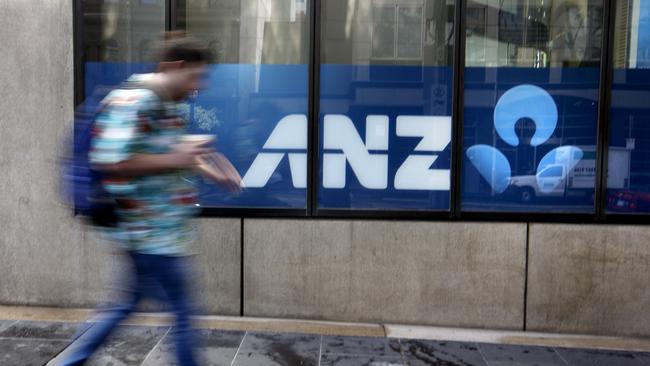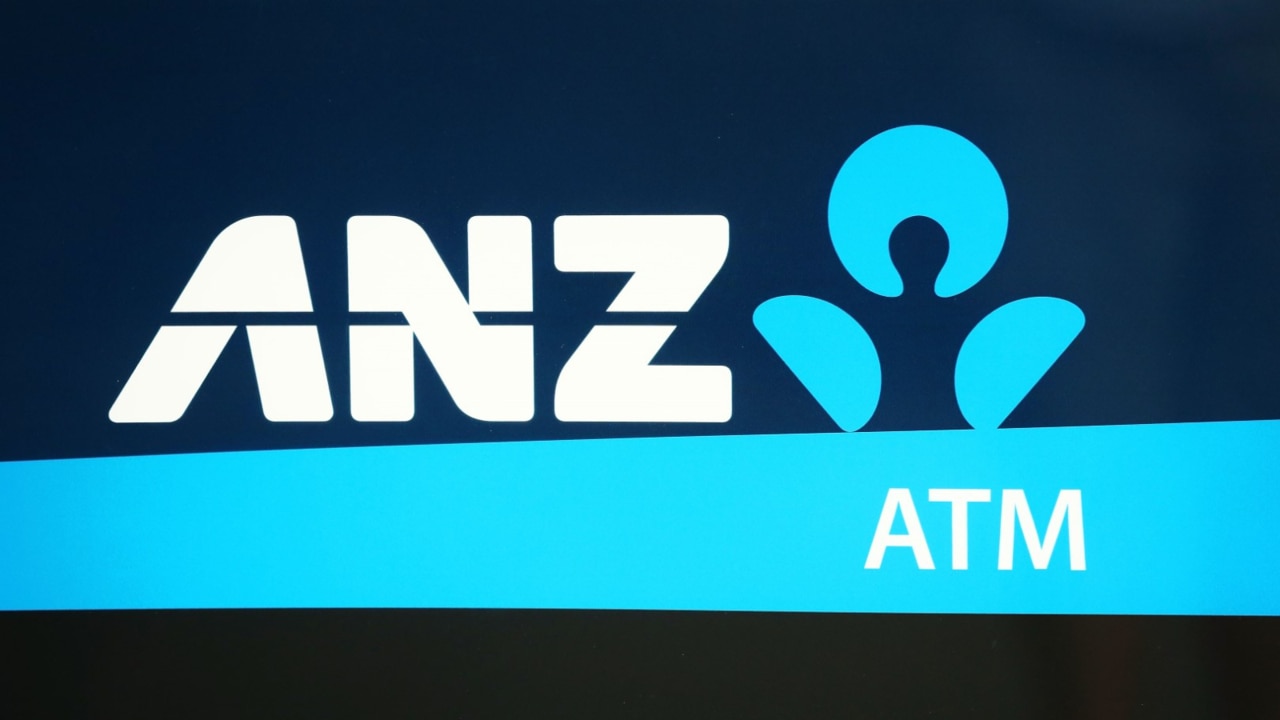ANZ, Suncorp merger: Regulator wants to turn back clock
Haunted by its approval of the St George buyout, the regulator signals the era of major bank mergers is over.

Business
Don't miss out on the headlines from Business. Followed categories will be added to My News.
The competition regulator has signalled the era of big bank deals is effectively over as it turns the clock back on its own history of merger approvals in a bold effort to give regional lenders a leg-up.
In a comprehensive rejection of ANZ’s $4.9bn move on Suncorp’s banking arm, the Australian Competition & Consumer Commission has declared it wants to give more than just protections for smaller banks and large credit unions. Indeed the regulator is effectively encouraging them to become more ambitious national players, regardless of whether that is strategically or financially sound.

The ACCC clearly remains haunted by its own 2007 decision to give the green light to Westpac’s $17.6bn deal to buy out St George Bank. While that acquisition gave Westpac a massive leg-up in the NSW market and parts of Victoria, the ACCC was satisfied at the time that banking was a rational national market and technology was changing the game. It begrudgingly gave retrospective approval to Commonwealth Bank’s shotgun acquisition of BankWest shortly after on similar grounds, although it felt it had its hands tied over stresses of the GFC.
Fast-forward today and the regulator has ignored the reality that banking has become even more fragmented and dynamic.
After nearly eight months mulling the transaction, Friday’s decision shows the ACCC never wanted to approve the ANZ buyout in the first place.
The regulator appears to be stuck in the 1990’s mindset where the world is made up of four big banks and just a handful of regionals fighting over the scraps. It believes the battle is largely state-based markets and full-service banking is the only thing going.
The ACCC’s deputy chairman deputy chair Mick Keogh places a lot of weight on a theoretical argument that the Big Four banks are engaged in a co-ordinated, but invisible, dance on pricing and conduct simply because they are the big four.
This co-ordination would become even more pronounced in the absence of Suncorp, Keogh argues because life will then be too comfortable for ANZ as it sits alongside rivals like Commonwealth Bank or Westpac.
While it sounds immediately appealing, this is a fundamentally simplistic approach to how banking operates. It ignores the strong relationship between funding, regulation, technology, investors and of course, customer behaviour.
But it’s the threat of this “live and let live behaviour” is why the deal is bad for home loans; bad for business banking; and bad for agribusiness, Keogh says. For ANZ, that’s three strikes from three.
ANZ intends to appeal the decision at the Australian Competition Tribunal, where it feels evidence of today’s banking market will get a better hearing over a regulator’s instinct.

In making the call, the ACCC has again stepped into the realm of being a market kingmaker rather than an adjudicator of competition.
Indeed, it has put outsized emphasis on the potential for a Bendigo and Adelaide Bank to do a deal with Suncorp Bank, arguing there is a “realistic commercial likelihood” this will now proceed.
If a Bendigo deal came to pass the regulator believe it would be a catch-all solution to strengthen and diversify the competitive power of second-tier banks and represent the long promised disruptor to the Big Four.
Bendigo previously approached Suncorp before ANZ entered into talks but the Queensland bank simply couldn’t make a sale to Bendigo work for shareholders or customers. Suncorp holds that view still today. It doesn’t want to take on Bendigo shares as risk. Bendigo too is yet to make the case to investors that a dilutive deal would be the best way to spend shareholder funds.
The Bank of Queensland’s recent but troubled acquisition of the $1.3bn ME Bank shows combination of two regionals isn’t a quick fix for a more competitive banking market.

Even since the St George merger more than 15 years ago, banking has structurally changed and a clear, steady erosion in profit margins shows consumers are winning, at the expense of bank shareholders.
Digital shift
The ACCC has failed to grasp the battle for banking today takes place through digital channels. And this has lowered the barriers to entry. For banks to win they need to be where their customers are and for most that is only as far away as the mobile phone.
The big motivation for ANZ buying Suncorp is to spread the massive cost of technology investment onto a larger customer base. It is locked in a tech battle against rivals – big and small – while global tech players, Apple, Google and even Jack Dorsey’s Block all want a lucrative slice of the Australian market.
Home lending today is firmly entrenched as a national market with 70 per cent of new loans written through mortgage brokers and that is only set to increase. And competition between banks is driven just as much as from prudential regulation as it is from market-based rivals.
Beyond mortgage brokers a prospective borrower in any city has direct access to more than 50 bank or non-bank lenders through a smartphone or laptop. Some brands can approve a home loan in less time than it takes to make a cup of tea.
Macquarie Group, which has a lending book the fraction of the size of ANZ, has done more than any other bank to inject competition into mortgage markets in recent years through a pure-digital proposition and it shows no signs of slowing down.

Meanwhile, Bendigo Bank’s digital only Up banking brand has built up almost as many loyal customers after a few years of operation than its decades-old Community Bank franchise.
In small to mid-sized banking there are new players like the fast-growing Judo Bank to non-bank lender Prosper. Agribusiness too is dominated by Dutch giant Rabobank and the likes of HSBC offering export financing. Bendigo to CBA, National Australia Bank and Westpac are also preparing to jump on years of inevitable distraction ANZ faces in a Suncorp merger. Indeed their shareholders would punish them for missing the chance.
And for Suncorp, the ACCC has now complicated its strategic intent to exit banking entirely to become a more competitive insurer. Indeed that is a market where premiums have surged and in many ways needs more capital invested in it than banking.
While the appeal process will test the regulator’s arguments, for now, the ACCC is determined to keep the nation’s banking market frozen in time.
johnstone@theaustralian.com.au
More Coverage
Originally published as ANZ, Suncorp merger: Regulator wants to turn back clock





